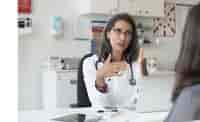Responsible use of antibiotics
In principle, taking any antibiotic can result in bacteria becoming increasingly resistant to the antibiotic being used. This then renders the antibiotic useless, as the bacteria develops defence mechanisms that enable them to become resistant to the effects of the antibiotic. As there are many diseases for which antibiotics provide lifesaving treatment, it is particularly important that everyone plays their part in curbing resistance. The following 7 points should help you to minimise any risk of infection and use antibiotics responsibly:
Do not insist on antibiotics
Antibiotics have no effect on viruses and are often not required in many other cases. Always listen to medical advice and only take antibiotics after a thorough examination, and as prescribed.
Complete the full course
If your doctor prescribes an antibiotic, they will also usually tell you how to take it. It is essential that you follow the doctor’s instructions, as the duration of treatment with antibiotics varies depending on the infection and the medication. The treatment will only be successful when your body has a sufficiently high concentration of the medication. If you do not take the required dose, or if you do not finish the course, the more resilient bacteria may survive and resist the medication.
Do not give antibiotics to anyone else
Do not give your antibiotics to anyone else. Not only may the antibiotic not be able to treat someone else, but it may also interact with medications they are taking.
Dispose of antibiotics properly
If you have any surplus antibiotics, dispose of them appropriately. Most pharmacies will take back any surplus medication and dispose of them properly. Some local authorities may also have collection points for harmful substances. Antibiotics can also be disposed of in residual waste. Caution! Never flush antibiotics down the sink or toilet. This is harmful to the environment and encourages resistance.
Regular hand washing
Wash your hands regularly throughout the day. It is especially important to wash your hands after going to the toilet as this is where many pathogenic bacteria can be harboured.
Keep your vaccinations up-to-date
Vaccinations need regular boosters to maintain their protection. The time and need for a booster depends on the vaccine. Your vaccination record will tell you when your next vaccination is due; if you are unsure, speak to your GP.
Follow medical advice
If you still have any questions or uncertainties, contact your GP or pharmacist and follow their advice when taking antibiotics. Tell your GP if you are taking any other medication. To some extent, antibiotics may seriously interact with other forms of medication, which may cause more serious side effects, or compromise the effectiveness of the medication.


